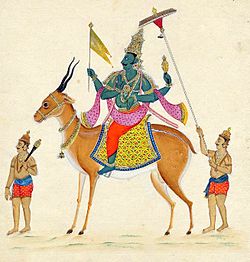
A wind god is a god who controls the wind(s). Air deities may also be considered here as wind is nothing more than moving air. Many polytheistic religions have one or more wind gods. They may also have a separate air god or a wind god may double as an air god. Many wind gods are also linked with one of the four seasons.






